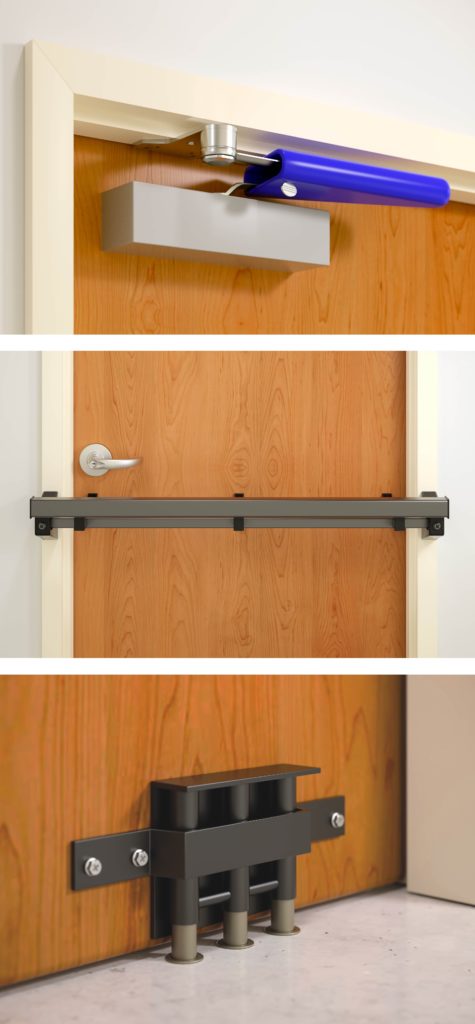 Friday was the 6th anniversary of the shooting at Sandy Hook Elementary School. Because I was traveling last week, I had set up the week’s blog posts without taking note of the dates, and I failed to mention the passing of this anniversary that has affected so many of us both personally and professionally. The tragedy at Sandy Hook was what initiated my work to help increase security and safety in schools and other facilities.
Friday was the 6th anniversary of the shooting at Sandy Hook Elementary School. Because I was traveling last week, I had set up the week’s blog posts without taking note of the dates, and I failed to mention the passing of this anniversary that has affected so many of us both personally and professionally. The tragedy at Sandy Hook was what initiated my work to help increase security and safety in schools and other facilities.
I received some important news on Friday – a press release entitled: “Campus Safety Takes Stand Against Non-Code-Compliant Door Barricades.” Campus Safety Magazine is a publication serving campus police chiefs, security directors, IT personnel, emergency managers and executive administrators involved in the public safety and security of major hospitals, schools and universities in the United States. I have written articles for Campus Safety, as have other industry professionals, but advertising for classroom barricade devices that appeared in the magazine sent mixed-messages to readers.
On Friday, Campus Safety announced that they will no longer accept ads or sponsorships from companies whose door barricades don’t comply with the Americans with Disabilities Act (ADA) and the requirements of the National Fire Protection Association (NFPA). This policy underscores the importance of code-compliant security products which allow free egress, meet the requirements for fire protection, and are operable by all building occupants.
The complete press release is below:
~~~
FOR IMMEDIATE RELEASE
Campus Safety Takes Stand Against Non-Code-Compliant Door Barricades
Campus Safety will no longer accept ads or sponsorships from companies whose door barricades don’t comply with ADA and NFPA codes.
(Framingham, Ma.) – December 14, 2018 – Campus Safety, the leading brand for campus security officials at schools, universities and healthcare facilities for more than a quarter century, is publicly announcing it will no longer accept advertising or sponsorships from non-ADA- and non-NFPA-compliant door barricade companies.
In recent years there has been a proliferation of door blocking devices hitting the market. The intention of the companies that manufacture these barricades is to save lives by preventing active shooters from entering classrooms or other areas where students, faculty, clinicians or others might be taking shelter.
However, these devices come with risk because they could prevent individuals with disabilities and, under some circumstances, even persons who don’t have any disabilities from evacuating a building during an emergency, such as a fire. That’s why access control and lock experts say these door barricades violate the Americans with Disability Act (ADA) as well as National Fire Protection Association (NFPA) codes. Although some jurisdictions are allowing these products to be adopted, experts say the risks outweigh the benefits. Multiple experts, organizations and associations have come out against door blocking devices.
Over the past several years, Campus Safety has described in great detail the challenges with these devices in numerous print and online editorials and in sessions at its Campus Safety Conferences, while maintaining strict abidance to its long-standing editorial policy to never endorse a particular product.
At the same time, Campus Safety has accepted advertising from various door barricade companies.
“But our conscience has been stirred to the breaking point,” says Steve Nesbitt, publisher of Campus Safety. “We are reminded of the potential dangers of barricade devices to students, faculty, administrators, clinicians, patients and others. Thus, Campus Safety, with the support of our parent company Emerald Expositions, is publicly choosing to no longer accept advertising or sponsorships from non-ADA- and non-NFPA-compliant door barricade companies.”
“Quite simply, it is the right thing to do.”
ASIS, PASS, DSSF & DHI Applaud CS Policy Change
Campus Safety’s policy change is being applauded by a wide range of campus security experts, associations and other organizations:
“ASIS International School Safety & Security Council appreciates Campus Safety magazine’s and the Campus Safety Conferences’ change in direction regarding dangerous non-code compliant barricade devices. While we know schools are anxious to provide quick solutions for active shooter situations, we must make sure that life safety codes are respected and avoid the potential harm to a student, teacher or anyone else who could be trapped in a classroom against their will without the ability to escape. The Council looks forward to bringing best practices to the readers of Campus Safety.”
– Mark J. Berger, Chair, ASIS international School Safety & Security Council
“The Partner Alliance for Safer Schools (PASS) fully supports the stand Campus Safety magazine and the Campus Safety Conferences are taking on barricade and ‘door-blocker’ devices. We stand with other organizations including the National Association of State Fire Marshals, Safe and Sound Schools, Door and Hardware Institute, Door Security and Safety Foundation, Security Industry Association and many more in opposing the deployment of these devices. In addition to life safety and fire code challenges, these devices also violate the ADA law. There are code- and ADA-compliant solutions that work and are currently in use in most schools. According to the Sandy Hook Commission, there is not one documented instance of an active shooter breaching a locked door. We have additional concerns with many of these devices that interfere with the efforts of emergency responders to quickly and safely reach staff and students during emergencies. At a time when many districts are re-evaluating their security measures and making new investments, it is now more critical than ever to ensure the use of proven, vetted and code-compliant security practices and make the most of limited resources.”
– Guy Grace, PASS Chairman
“Door Security and Safety Foundation (DSSF) and Door and Hardware Institute (DHI) thanks Campus Safety magazine and the Campus Safety Conferences for recognizing the dangerous unintended consequences of installing non-code compliant barricade devices on campus classroom doors. While barricade devices are perceived as providing security, they violate fire and life safety building codes including the Americans with Disabilities Act. DSSF is committed to ensuring that campuses are safe havens for students, faculty, administrators and visitors.”
– Jerry Heppes DSSF and DHI CEO
Nesbitt adds, “We trust that our decision to not accept advertisements or sponsorships from non-ADA and non-NFPA-code compliant door barricade companies will clear up any confusion surrounding the complex issue of campus lockdowns and active shooter response.”
About Campus Safety (CS)
Campus Safety Magazine, CampusSafetyMagazine.com and the Campus Safety Conferences provide best practices, the latest news and expert commentary on all aspects of K-12, higher education and healthcare facility security, public safety, emergency management and technology. Campus Safety’s select audience is comprised of professional decision makers, including campus police chiefs, security directors, IT personnel, emergency managers and executive administrators responsible for the public safety and security of major hospitals, schools and universities. CS is based in Framingham, Mass.
Campus Safety is owned and operated by Emerald Expositions, a leading operator of business-to-business trade shows in the United States. The company currently operates more than 55 trade shows, as well as numerous other face-to-face events. In 2017, Emerald’s events connected over 500,000 global attendees and exhibitors and occupied more than 6.9 million NSF of exhibition space.
For more information visit www.CampusSafetyMagazine.com.
You need to login or register to bookmark/favorite this content.


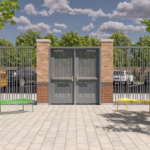
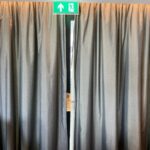
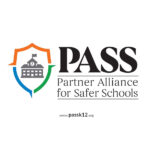
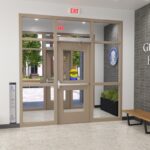
Hooray! People are finally starting to see the negatives associated with barricade devices.